Steam & Condensate Pipes
STEAM & CONDENSATE PIPE INSULATION
To carry pressurised steam from a boiler to working components, steam and condensate pipes and lines are used. They are also used to heat products and/or stop products from solidifying. Boilers, with a fuel or electric powered energy source are used for industrial heating and humidification applications, heating water and/or generating steam. Steam boilers are also used for power generation and industrial heating applications, for heating, cooling, hot water, sterilising, and processing. The high efficiency and ease of transportation and control make steam and condensate pipes an ideal choice for heat transfer.
BENEFITS
- Cost Savings: Proper insulation of steam, condensate, and boilers can reduce plant running costs and improve cost efficiency.
- Efficient Heat Transfer: Our insulation solutions are engineered to minimise heat loss, ensuring your system operates efficiently.
- Workplace Safety: We have designed insulation solutions to provide optimal personal protection, reducing the risk of workplace accidents related to heat exposure.
- Reliable Performance: We rigorously test after implementation to ensure they meet the highest quality and durability standards.

SUITABLE INDUSTRIES
- Oil and Gas
- Food
- Energy
- Tank Storage
- Pharmaceutical
- Dairy
- Petrochemical and Chemical
- Power industries
- Wastewater treatment plants
HOW WE HELP
We are the leading experts in providing insulation solutions for Steam and Condensate Pipes in Australia. Navigating the complexities of installing steam and condensate pipes can be daunting. That's where we come in. Our team specialises in the fabrication, installation, and maintenance of these critical systems.
From selecting suitable materials to ensuring optimal boiler insulation, we handle every detail to guarantee a seamless and efficient installation process. By partnering with us, you're not just getting a service; you're gaining a team committed to delivering reliable and efficient solutions that stand the test of time.


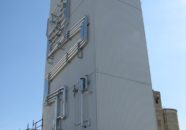
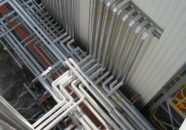
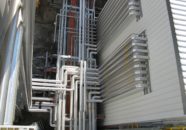
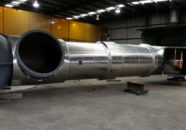


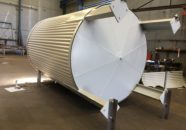
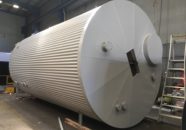
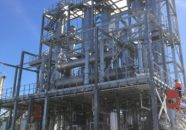
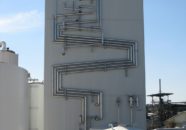
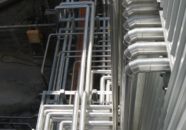


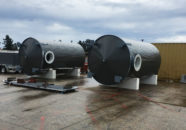
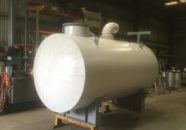


WHY US?
- Experience: Our team has built a reputation in the heating pipes and insulation industry over two decades. We pride ourselves on delivering top-quality and reliable insulation solutions, specialising in fabricating, installing, repairing, and maintaining thermal and acoustic insulation for industrial heating pipes.
- Expertise: Therma-Safe Insulation brings extensive experience to insulation projects of all sizes, whether they're local, regional, metropolitan, or interstate. Our end-to-end expertise encompasses everything from providing accurate estimates to skilled fabrication, fitting, and maintenance of your heating pipe insulation.
- End-to-End Solutions: We offer bespoke insulation solutions for various industry sectors. Our specialisation in Steam & Condensate Pipe Insulation ensures optimal temperature control, reliability, and cost savings for our clients' business operations. We are dedicated to addressing all your insulation needs.
GET A QUOTE
Let Us Help You Solve Your Insulation Needs!
Reach out to our team to discover the leading solution for your steam & condensate pipe insulation needs.
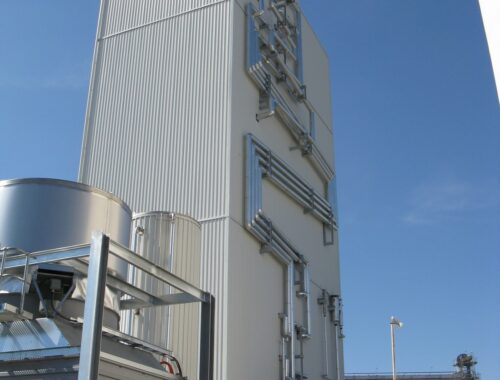
FAQs
How can I determine the right pipe size for my steam and condensate system?
Selecting the appropriate pipe size for your steam and condensate system is quite a significant decision.
It involves considering factors like how much steam you need, the pressure it operates at, and how far it needs to travel. It's best to consult with our knowledgeable engineers or specialists to ensure everything runs smoothly and efficiently, as they can help you make the right choices.
How often should steam and condensate pipe systems be inspected and maintained?
Keeping your steam and condensate system in good shape is like giving it a check-up to ensure everything is running smoothly.
It's important to keep up with regular inspections and maintenance to avoid any issues with leaks or blockages in your system. How often these check-ups happen depends on your system's size, how complicated it is, and how much it's used.
Consider monthly check-ins for heavy-duty ones, while simpler setups might only need an annual visit. It's all about ensuring your system keeps chugging along efficiently and reliably.